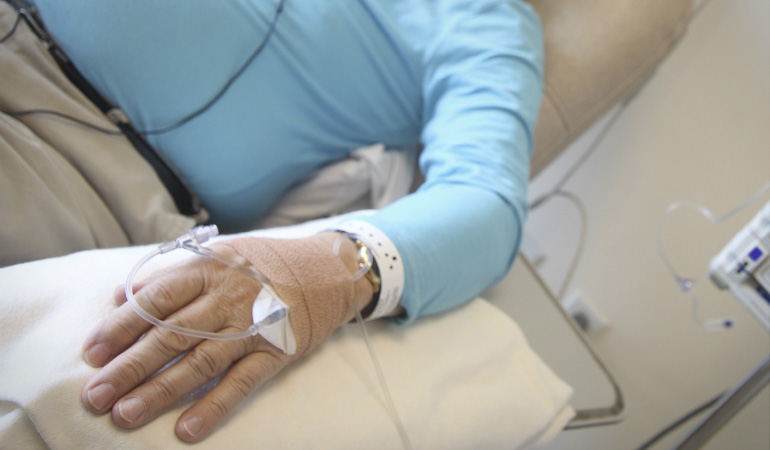A newly developed blood test could alter the way cancer is treated and potentially help patients avoid chemotherapy.
The blood test, also called a “liquid biopsy” is being trialled all across Australia and New Zealand at more than 40 hospitals, and is showing promising results.
What the test is able to determine is the risk of a cancer returning post-op, thus helping determine the correct dosage of chemotherapy a patient may need.
Chemotherapy, a common treatment for a number of cancers, is currently used post surgery to remove any “residue” of the cancer that may be left behind.
While some people are completely cancer free after having the tumour surgically removed, others are at risk of a recurrence. Currently patients are assessed using results from pathology testing of the tumour and evaluation of other risk factors.
This means chemotherapy is prescribed for patients who are considered high risk, without knowing whether it’s necessary, to ensure the cancer does not return.
So there are patients who are being administered anti-cancer drugs when they may not need them.
However, this new blood test could be the indicator that ensures that unnecessary chemotherapy treatments are a thing of the past.
What this blood test is able to do is look for fragments of tumour DNA that have spread to the bloodstream, something that was previously unachievable.
Chemotherapy, while effective, comes with a number of side effects such as; fatigue, nausea, hair loss, anaemia and nerve damage.
For any patient, these are side effects they would like to avoid if they are able to.
Dr Graeme Suthers, Director of Genetics at Sonic Healthcare, says that the research “is a great example of advances in pathology technology that promote accuracy and have clear benefit to patients”.
“It’s great that a trial like this is being conducted on a large scale because this is a technology that could be used to help the wider population across a number of different kinds of cancer.”
“When something like this can be accessed by more people, it not only benefits the patient by helping them avoid unnecessary negative side effects but it can save the health sector money by decreasing the number of chemotherapy treatments that are administered.”
“As further clinical uses of this type of testing are identified, we are likely to see more trials like this, that can offer insight into where testing is most appropriate and beneficial for patients, and the health system.”
The liquid biopsy trials began in 2015 for early-stage bowel cancer patients and were later extended to women with ovarian cancer in 2017. The next step in the trial will focus on pancreatic cancer.
More than 400 people are currently participating in the trial, but there is potential for this number to increase to more than 2000. It is expected to run until 2021 for bowel cancer and 2019 for ovarian cancer.
*Image: Bowel Cancer Australia

